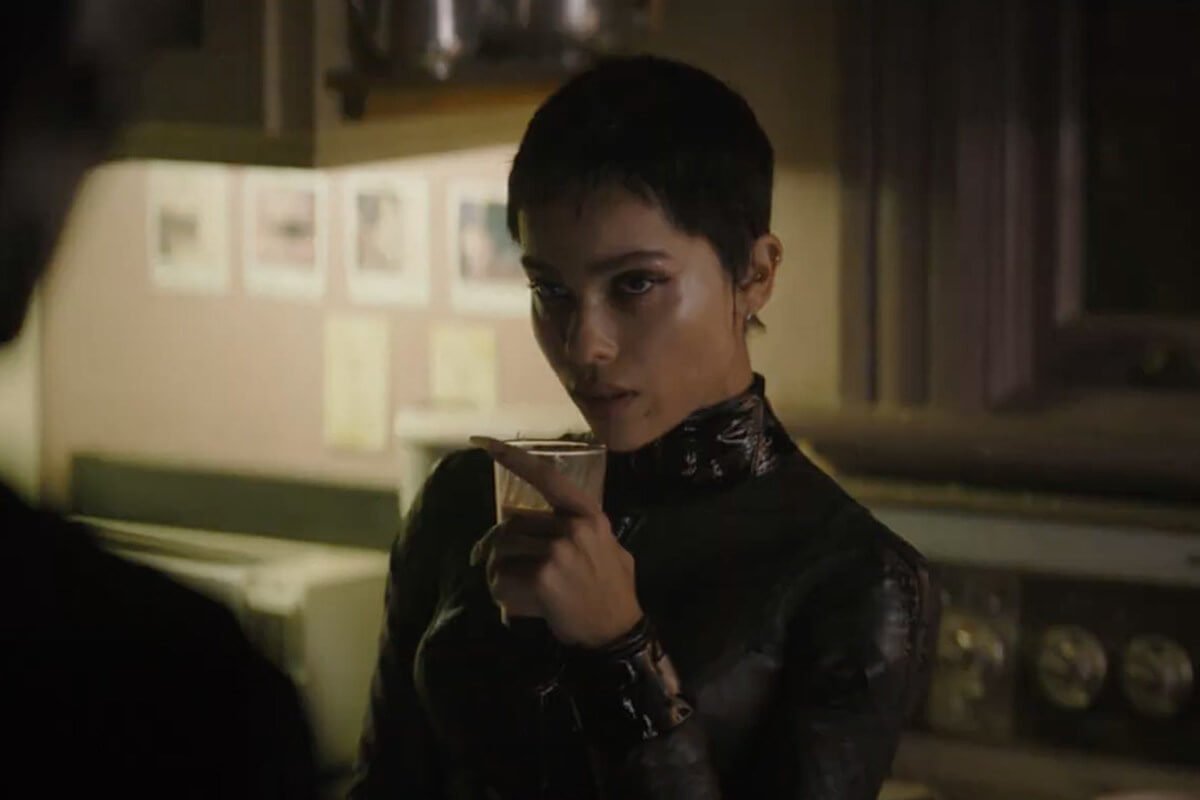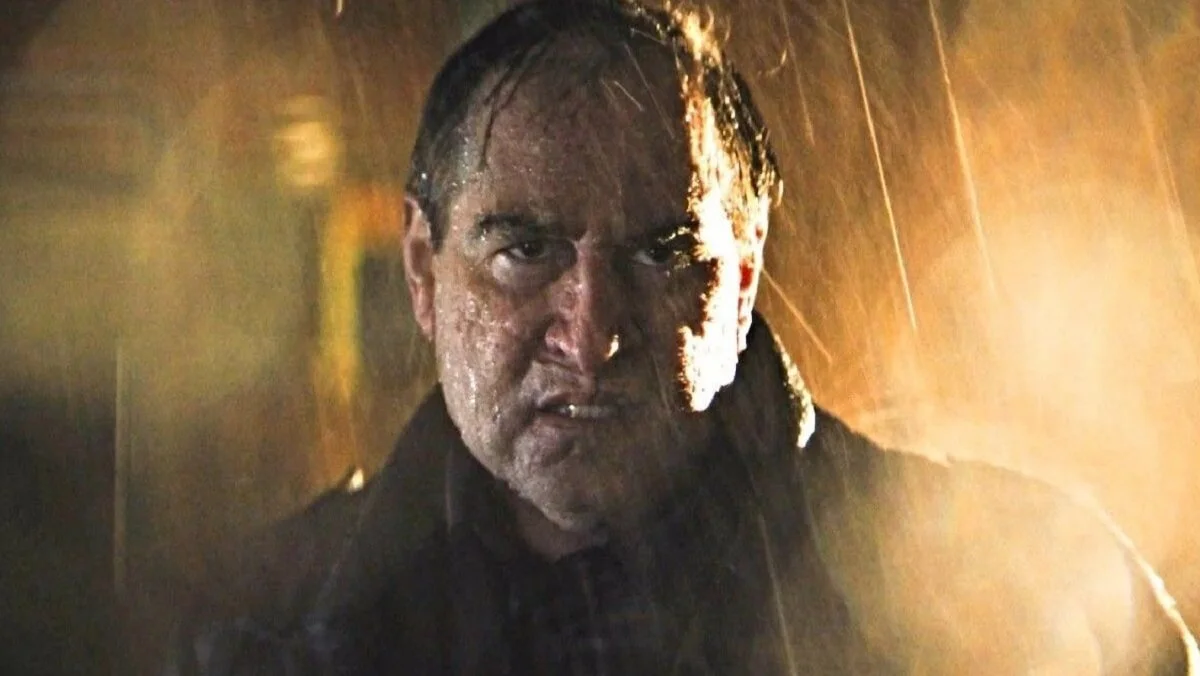Writers: Matt Reeves & Peter Kane / Director: Matt Reeves / Released by: Warner Bros. / 175 Minutes
28th February 2022
Before reading, please note that I have attempted to be as spoiler-free as possible. However, there may be some spoilers present in the review. We'll be offering a full-spoiler review on our YouTube Channel on 12th March 2022. Subscribe so you don't miss it!
The Pitch: Batman ventures into Gotham City's underworld when a sadistic killer leaves behind a trail of cryptic clues. As the evidence begins to lead closer to home and the scale of the perpetrator's plans become clear, he must forge new relationships, unmask the culprit and bring justice to the abuse of power and corruption that has long plagued the metropolis.
During much of the pre-release press for The Batman, the latest iteration of arguably the world's most popular comics character, director Matt Reeves had promised a version like no other. This is the kind of claim film-makers often make, hubris being the name of the game when it comes to film promotion. Since the marketing for large-scale entertainment is such a part of our lives, with the saturation level being set to near-unavoidable, it is often difficult to separate the sizzle from the stake. Indeed, it is the sizzle we may be addicted to. The qualitative aspects of a film are often rendered moot if the excitement surrounding the arrival of the movie is pitched loud enough. We must never be allowed to forget that this is entertainment and we must want it, all day, every day. Our actual feelings on the art don't seem to matter. Witness the hoopla surrounding Spider-Man: No Way Home, a film we demanded, it seems. And yet if you scratched below its admittedly very entertaining surface, some very severe problems with craft were evident. It was fun, but not brilliantly made fun. So going into this film, one had to wonder if the same problems would resurface. And would my own anticipation unbalance my reporting on the film? How would I feel about this rendition of a character I've loved since I was five years old. Well, I have to say, my excitement had reached fever pitch by the time the lights went down and the film's logos were emblazoned across the screen. But as the credits rolled, the excitement had vanished. I was left with a mixed bag of emotions, both awe and disappointment. I hope by the time I reach the end of this review I've managed to sort through those feelings.
First of all, let's address this notion of a Batman like no other. That is proved fairly early on to be true. In the hands of Reeves, his co-writer Peter Kane tease the more Batman-literate of us in the opening moments, with a young child of clearly wealthy parents, playing at being a deadly sword-master in the living room of their beautifully appointed, gothic mansion. What adds an eerie dimension to this scene, besides the tones of Ave Maria playing over it, is the fact that we’re watching this unfold through someone's POV. We hear laboured breathing. Our minds race – is this someone who means the houses' occupants harm? The POV shifts to open skylight. Is the watcher going to enter the house? Are the occupants The Waynes? Is the boy playing Zorro a young Bruce? Will we see a horrifying home-invasion version of the murder that makes Batman?
Sadly, I can't tell you as this would stray deep into spoiler territory. But I will mention that the opening scene sets up one of the film's major themes: how we view the world and how that perception can matter more than how the world actually is. The scene is also notable because it marks the film out as possibly the super-hero genre's first scopophilic entry. The Riddler watches. His reign of terror is cemented via the internet and smartphones. His followers watch him. The Batman watches. The cops watch Batman. Everything becomes about seeing. The Batman joins the ranks of other scopophilic masterpieces as we begin to recall Manhunter, Peeping Tom, Strange Days and Blade Runner. At times, the mood, feel and themes threaten to tip the film over into sci-fi. The setting is gothic, with techno plug-ins. Retrofitted for misery, there is omnipresent rain making it hard to see and hear, adding to that theme of how we see, and introducing a level of filth, murk and atmosphere that conspire to oppress Gothamites and suppress information. Thematically, the film is ambitious. But does its reach exceed its grasp? The answer is, unsurprisingly yes... and no. The direction and writing seem to be at odds in many places. Much of the speech in the film suffers from being too heavy, too noir-influenced. The dialogue feels like dialogue rather than anything approaching authentic speech. At least it would if you could actually hear it, Since Reeves chooses to drown you with sensory overload, the constant rain, the effervescence on the effects mix... It becomes annoying very quickly. At one stage, I swear he had the sound of Pattinson's Bat-bike, the city noise, a voice-over AND Nirvana all blasting at once. No wonder the film felt more confusing than it actually was. Yet... despite these gripes – and they are just gripes – the film becomes a bold experiment in style meets genre and becomes an experimental art piece. At times there's a low-key fantastical tone sounding off underneath the noise, bringing in elements of Dickensian poverty, with faces that look like they could pick a pocket or two, given the chance. The look is grimy. Gotham is a place where Travis Bickle would be at home, waiting for a real rain to come.
This sense of people immersed in filth extends to Pattinson. Look, it's impossible to banish memories of cultural, memeable black holes like Twilight. They're too huge, like Batman. But he's proved himself to be a far better actor than that early material suggests. Physically slighter than any Batman before him, he cuts a pale and interesting figure, Batman as etched in conspiracy by Gerard Way and Paul Pope. He plays the maladjusted loner well, a man who lives by night, doesn't like to be seen in public and barely showers. One can only imagine how much of himself is in the part. But all joking aside he plays it well. The look is great. The Batsuit feels crafted by a person for a person. There are some action moments lit only by gunfire that will genuinely excite you with just how badass they play. But even the visuals get slightly sabotaged by the decision to blur everything but the centre of the frame, something that seems to have crept in over the last few years and is one of the more annoying photographic traits around since no one can seem to display any self-control and use it sparingly, so they just do it on 90% of the shots. But hey, when you can see him, Pattinson is worth watching. Zoe Kravitz, a talented, brooding presence in so many things is ham-strung by the dialogue, which wants desperately for her to be an old-school chanteuse but instead makes her lines seem entirely affected. It's a shame because she's often the best thing in anything she appears in. Here, despite issues, she is a striking mix of vulnerability and “don't fuck with me” street smarts. There are familial resonances between her Selina Kyle and Pattinson's Bruce Wayne as both of them feel the pressure of their family names and the sins of their fathers.
The film seems to borrow heavily from Burton's Batman era, weighing the picture down with Villains. The biggest antagonist is Paul Dano's Riddler, playing the role in the style of The Zodiac killer if he had social media manager. He remains a lingering presence, even when he's not on screen. We're also treated to an uppity, entitled, wormy performance from a completely unrecognisable Colin Farrell as The Penguin. Farrell, has grown beautifully from Hollywood's bad boy to one of its finest character actors and seems at home in that space. This is a showy, scenery-chewing part, covering him in prosthetics. It allows him to be scarred, guttural and filthy in tone, the dark heart beating at the centre of Gotham. Special mention should also go to John Turturro and Peter Sarsgaard, playing Carmine Falcone and DA Gil Coulson respectively, with the latter proving to be a lonely, pathetic presence who has clearly been kicked around too much.
Plot-wise, the film is fine. It would be easier to navigate it if the constant layers of atmosphere weren't being ladled on. Yet, on the other hand, these add to the strange nature of the piece. The film's final act, where the Riddler's ultimate motivations and planning come to fruition are particularly hurt by a sudden shift in the film's girth. It is simply too big an ending for the film that has gone before it and feels out of place. Again, I want to stay spoiler-free and that keeps me from detailing fully the events, but I expect many of you will feel as I do and wish that half the story's climatic ideas had been dispensed with. It is too big a movie in the last thirty minutes, creating a primary threat it would take Superman to handle, when it should have concentrated on the secondary one, keeping the film's tight, political climax on track. I came away from The Batman both thrilled and confused, excited by the tone, style and action, yet flummoxed by the amount of stuff the film piles onto the viewer, seemingly intent on overloading the audience. All in all, this is a bold shift in the landscape of the superhero genre, a film willing to find a heart of darkness yet still trying to appeal to the widest audience possible. Reeves finds a language new to comic-based cinema but perhaps needs to pull back for future films and find his centre. The Batman isn't the definitive take on this character but manages to employ characteristics not previously seen in other versions – Bruce's psychological damage, his quest to become the World's greatest detective. With a sequel all but in hand, let's hope that Pattinson's Batman will see some growth and that Reeves push further forward with his vision.
The Batman is general release from 4th March.






